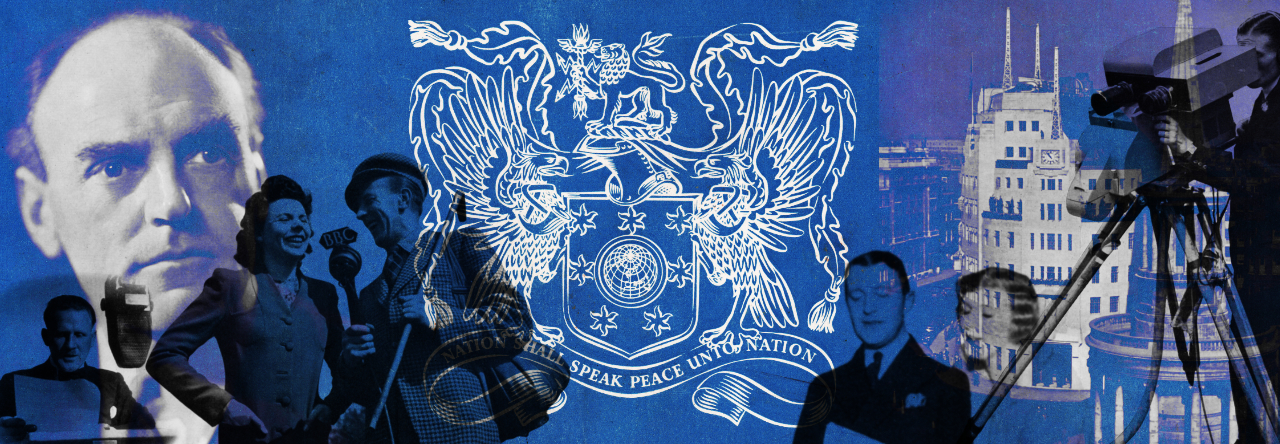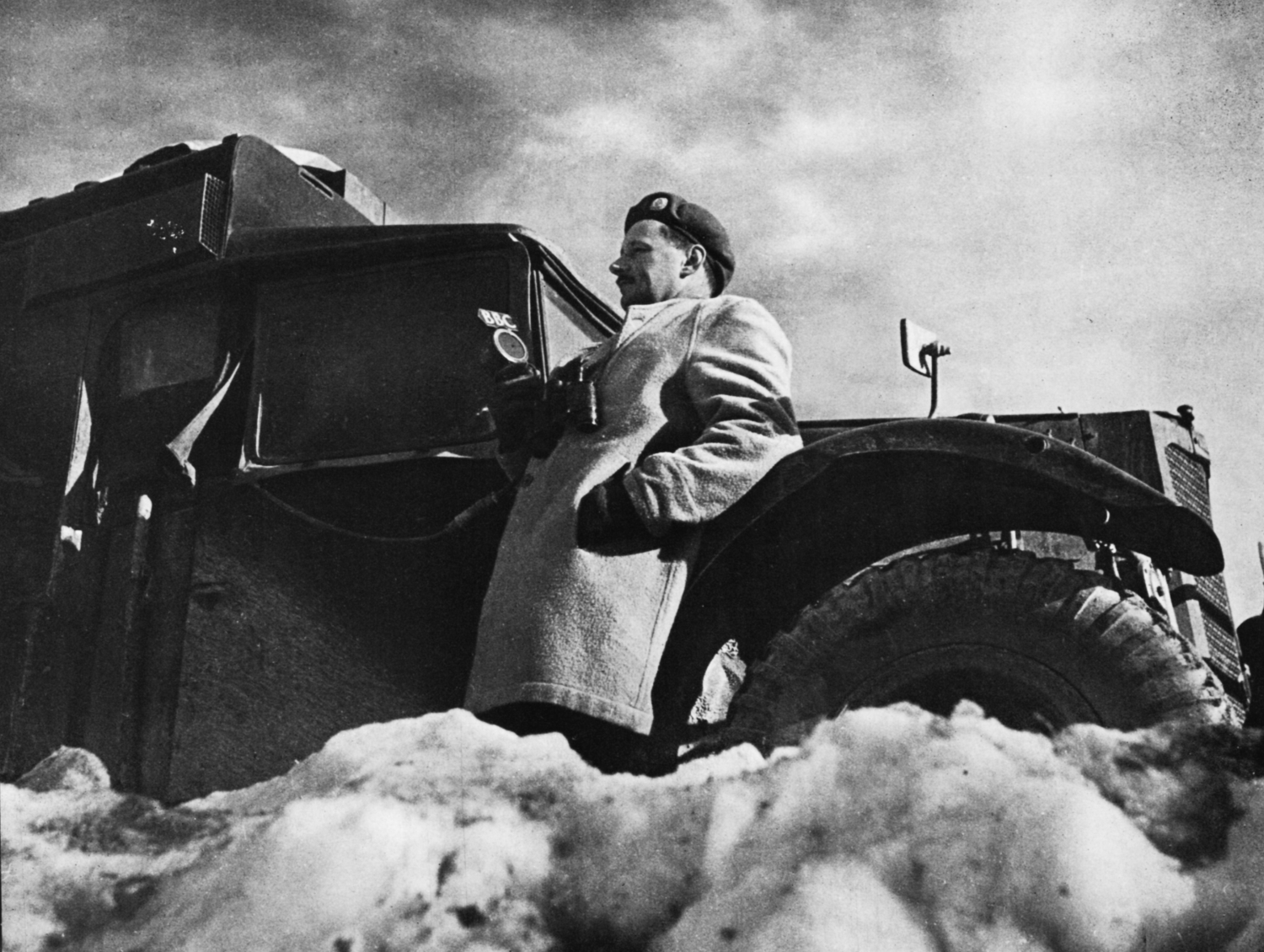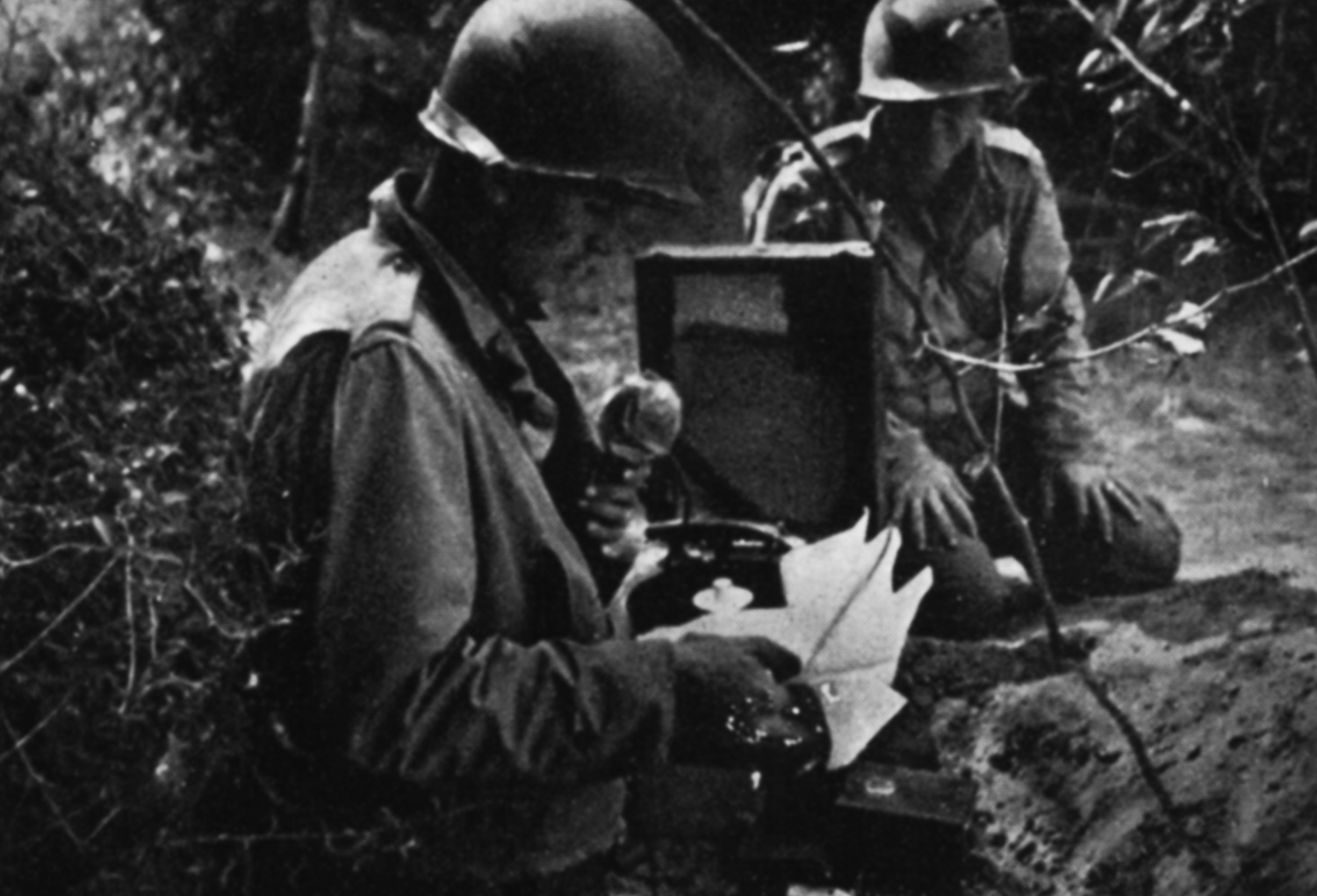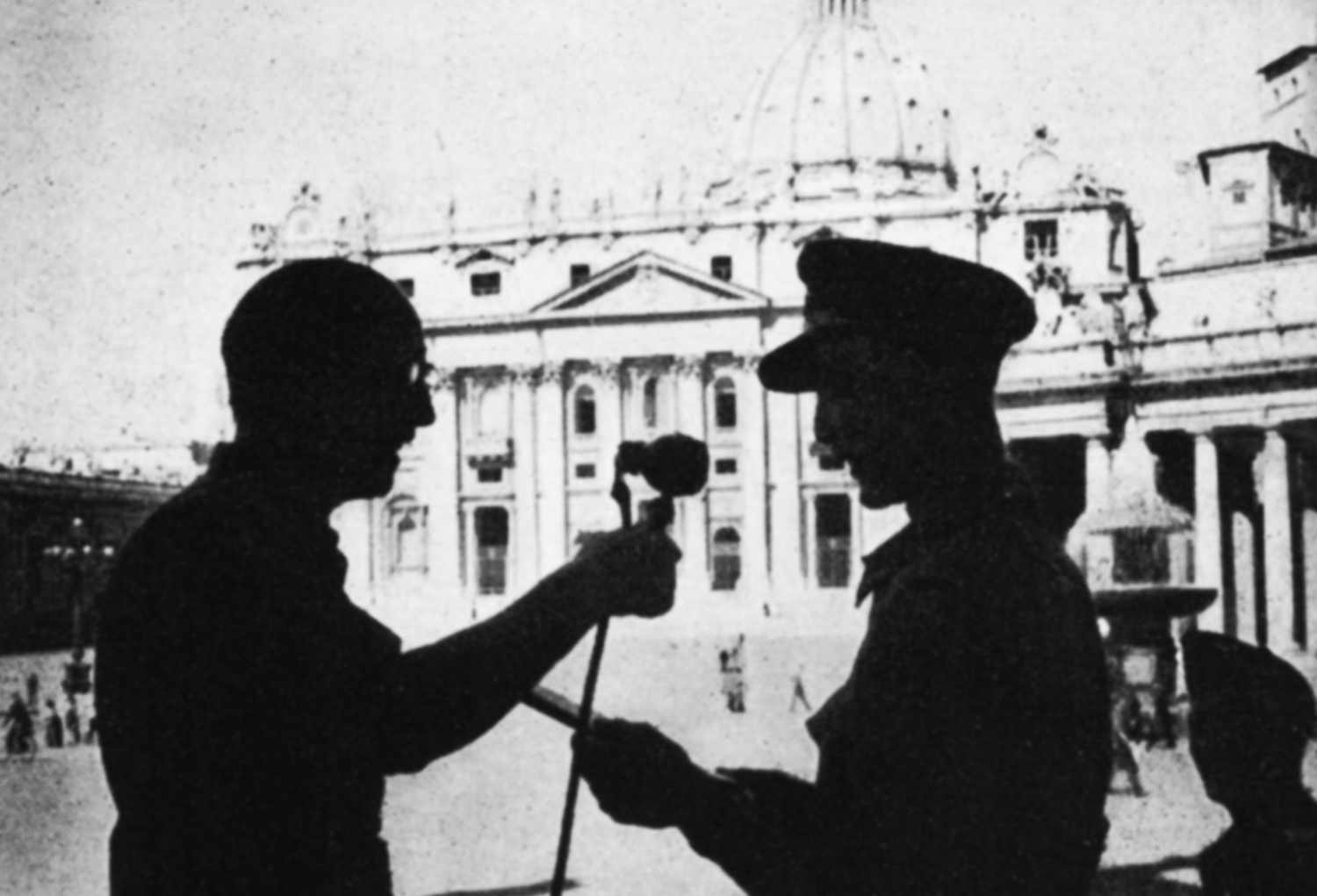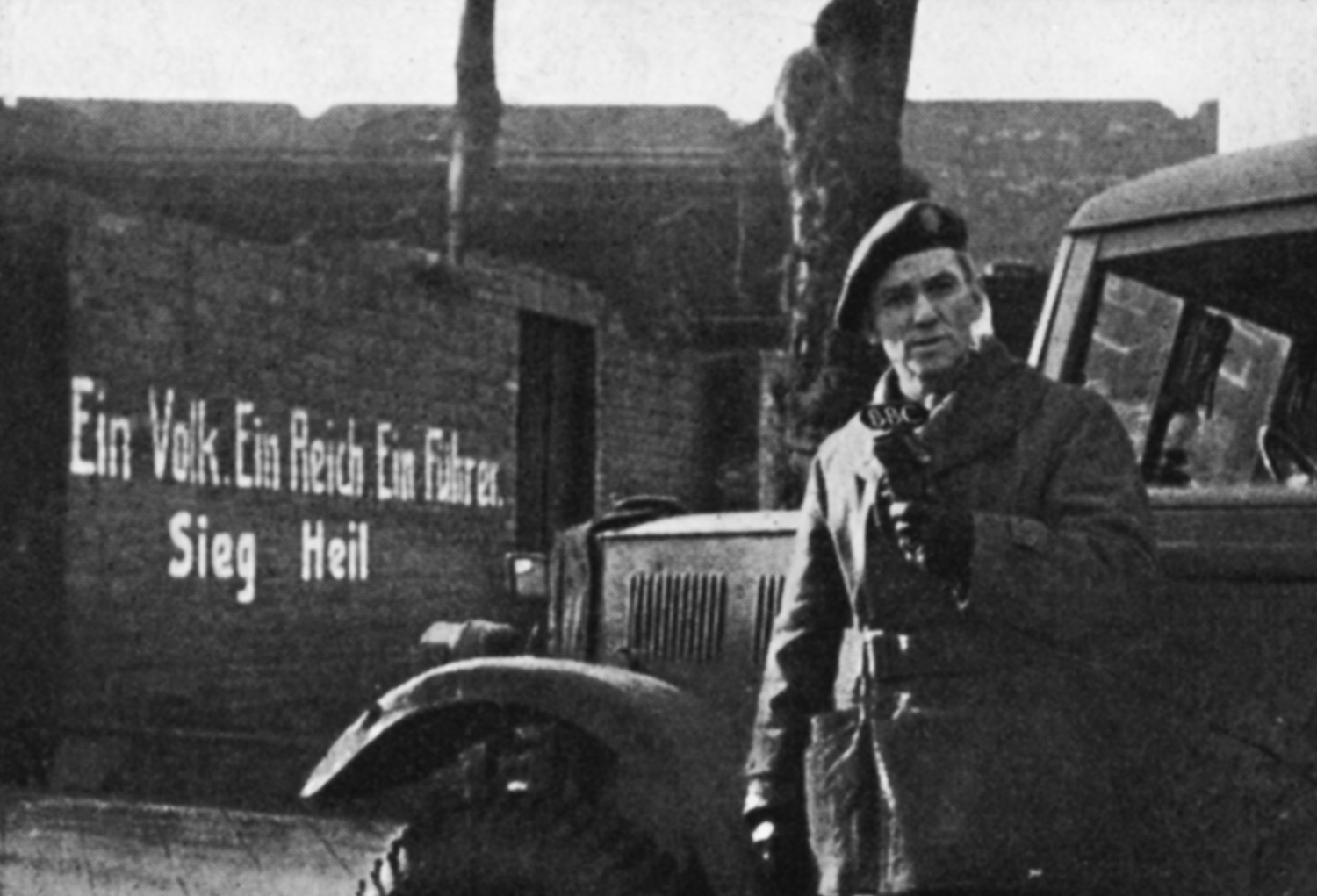‘The Allies are closing in…’
ON D-DAY, 6 June, 1944, War Report was broadcast for the first time in the Home Service after the nine o’clock news. When, eleven months later, the final Report was put out at the moment of final victory in the West, its daily audience had reached a total of between ten and fifteen million listeners. As a programme, it cut across departmental boundaries, involving the close collaboration, both in the field and at Broadcasting House, of newsmen, outside broadcasters, feature writers, and engineers. It was a blend of different skills, combining the situation report, the descriptive despatch, the running commentary, the recording of scenes in sound, and the dramatized documentary. The men who made up the team went through an intensive military training. They were equipped with mobile transmitters for direct speech links. These, as conditions became stabilized, were increased in power, advancing in the wake of the armies. There were mobile recording trucks and vans, such as had been used on other fronts. In addition, BBC engineers had designed portable midget recorders, weighing only forty lb., whose delicate machinery stood up splendidly to the use made of them by correspondents under enemy fire. From the first dramatic moment when London announced ‘And now — over to Normandy’, until the words, ‘It’s just the job’ were spoken by the sergeant who signalled Field-Marshal Montgomery’s orders to the surrendering Germans, War Report, in the Field-Marshal’s own words, ‘made no mean contribution to final victory’.

